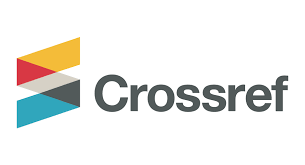Mediasi Penal dalam Penyelesaian Tindak Pidana Kekerasan dalam Rumah Tangga yang Dilakukan Suami Terhadap Istri (Studi di Polres Pamekasan)
 Abstract views: 375
,
Abstract views: 375
,
 PDF downloads: 434
PDF downloads: 434
Abstract
This Journal writing is about the penal mediation in the resolution of criminal offenses related to domestic violence against the husband and wife who performed at the police station Pamekasan This background Basically every family wants to build a happy family and a sense of mutual love, both physically and spiritually, but the fact that not all families desire is reached, where the frequent occurrence of domestic violence committed by husbands against wives, but in cases of litigation pending against domestic violence in the penal mediation solved by investigators, as is done in the Police Pamekasan where investigators penal mediation in cases of domestic violence. Thus, the observed phenomenon needs to be studied on a few things, first: basic considerations Pamekasan police, victims and perpetrators of domestic violence penal mediation to resolve cases of domestic violence, and the second: is related to the implementation of penal mediation in resolving criminal offenses relating to the violence in the household.
Downloads
References
Ali, Achmad. 2002, Menguak Tabir Hukum. PT Toko Gunung Agung, Jakarta.
Arief, Barda Nawawi. 2010, Mediasi Penal Penyelesaian Perkara Di Luar Pengadilan. Pustaka Magister, Semarang.
Arikanto, Suharsimi. 2008, Prosedur Penelitian Suatu Pendekatan Praktek, PT. Asdi Mahasatya, Jakarta.
Fakih, Mansour. 2003, Analisi Gender dan Transformasi sosial, Pustaka Pelajar, Yogyakarta.
Eja, Yuarsi Susi. 2002, Menggagas Tempat Yang Aman Bagi Perempuan Cetakan 1, Pusat
Studi Kependudukan dan Kebijakan Universitas Gajah Mada, Yogyakarta. Irianto, Sulistyowati. 2006, Isu Kekerasan Dalam Rumah Tangga Dari Perspektif Pluralisme
Hukum, Dalam Perempuan Dan Hukum Menuju Hukum yang berperspektif
Kesetaraan dan Keadilan, Yayasan Obor, Jakarta.
Kelana, Momo. 2002, Memahami Undang-Undang Kepolisian: Latar Belakang dan Komentar Pasal demi Pasal, PTIK Press, Jakarta.
Margono, 2004, Metodologi Penelitian Pendidikan, Jakarta, Rineka Cipta.
Masinambow, E.K.M. 2003, Hukum dan Kemajemukan Budaya, Yayasan Obor Indonesia, Jakarta.
Muhammad, Abdulkadir. 2004, Hukum dan Penelitian Hukum, PT. Citra aditya Bakti, Bandung.
Prasetyo, Bambang dan Lina Mifathul Jannah. 2005, Metode Penelitian Kuantitatif Teori dan Aplikasi, PT Rajagrafindo, Jakarta.
Rahardjo, Satjipto. 2000, Ilmu Hukum, Citra Aditya Bakti, Bandung.
Sadjijono, 2005, Mengenal Hukum Kepolisian Perspektif Kedudukan dan Hubungannya dalam Hukum Administrasi, Leksbang Mediatama, Surabaya.
Soekanto, Soerjono, 1986, Pengantar Penelitian Hukum, UI Press, Jakarta
Sugiyono, 2001, Statistika untuk Penelitian, Alfabeta. Bandung.
Syukur, Fatahillah A. 2011, Mediasi Perkara KDRT (Kekerasan Dalam Rumah Tangga) Teori dan Praktek di Pengadilan Indonesia, Mandar Maju, Bandung.
Waluyo, Bambang. 1991, Penelitian Hukum Dalam Praktek, Sinar Grafika, Jakarta.
Undang-undang No. 30/1999 tentang Arbitrase dan Alternatif Penyelesaian Sengketa.
Undang-Undang No 23 tahun 2004 Tentang Penghapusan Kekerasan dalam Rumah Tangga.
Arief, Barda Nawawi. Mediasi Penal: Penyelesaian Perkara diluar Pengadilan, http:// bardanawawi.files.wordpress.com. Diakses pada tanggal 12 February 2013. Nurma, Pemicu Kekerasan Dalam Rumah Tangga, http:// www.ccde.or.id/index.php.
Rohana, Data sekunder dan primer, http://www.scribd.com. Diakses pada tanggal 10 oktober 2010.
Publishing your paper with As-Shahifah : Journal of Constitutional Law and Governance means that the author or authors retain the copyright in the paper. As-Shahifah granted an exclusive non commercial reuse license by the author(s), but the author(s) are able to put the paper onto a website, distribute it to colleagues, give it to students, use it in your thesis etc, so long as the use is not directed at commercial advantage or toward private monetary gain. The author(s) can reuse the figures and tables and other information contained in their paper published by As-Shahifah in future papers or work without having to ask anyone for permission, provided that the figures, tables or other information that is included in the new paper or work properly references the published paper as the source of the figures, tables or other information, and the new paper or work is not direct at private monetary gain or commercial advantage.
As-Shahifah journal provides immediate open access to its content on the principle that making research freely available to the public supports a greater global exchange of knowledge. This journal is licensed under a Creative Commons Attribution-ShareAlike 4.0.This license lets others remix, tweak, and build upon your work non-commercially, and although their new works must also acknowledge & be non-commercial, they don’t have to license their derivative works on the same terms.
As-Shahifah journal Open Access articles are distributed under this Creative Commons Attribution-ShareAlike 4.0 International License (CC BY-SA). Articles can be read and shared for noncommercial purposes under the following conditions:
- BY: Attribution must be given to the original source (Attribution)
- SA: If you remix, transform, or build upon the material, you must distribute your contributions under the same license as the original.









